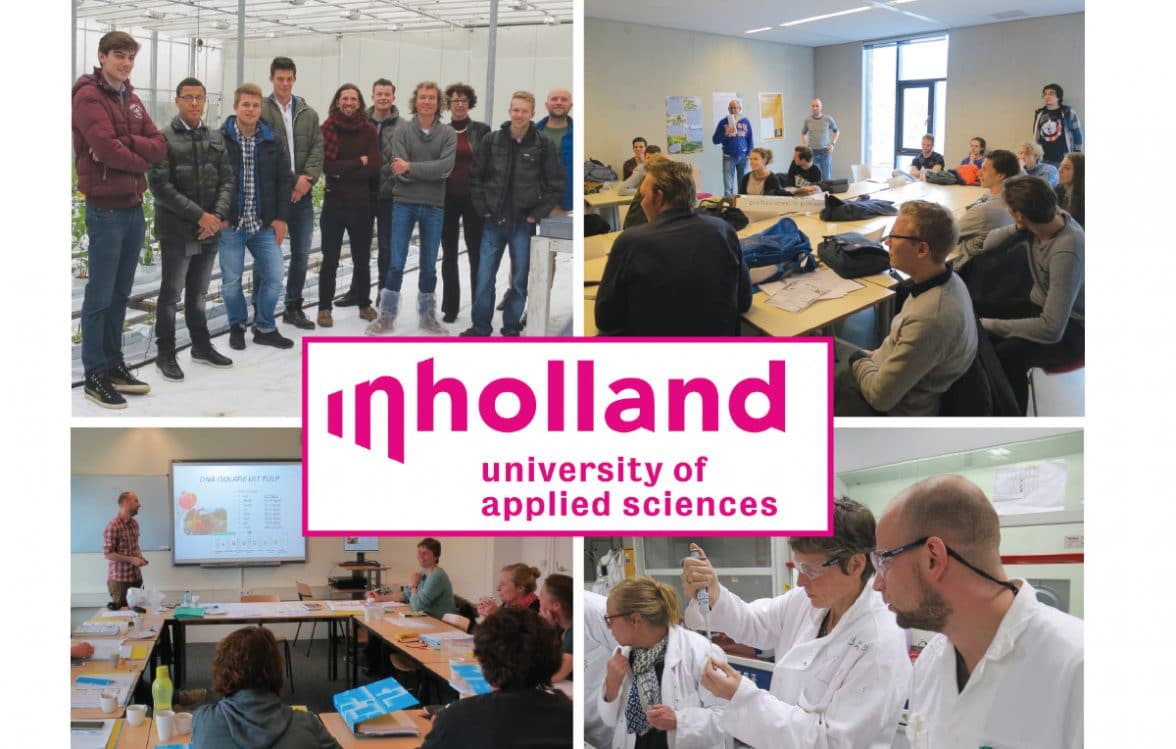The Green Biotechnology program at the University Inholland is ensuring talented people have the skills they need to enter the seed industry.

At a time when fewer and fewer young people are interested in studying plant breeding and other related studies, it is important, more than ever before, that we maintain and even stimulate possibilities for young people to study these topics.
Three years ago, a lectorate for green biotechnology was founded at the University Inholland (a University of Applied Sciences), supported by plant breeding companies from Seedvalley, the University of Amsterdam and the Amsterdam Economic Board. The goal was to update our educational programme, to start up research projects and to integrate research in the curriculum.
Our program educates and trains students for their future career as a technician in plant breeding companies or as a research assistant at universities working in plant science, plant biotechnology or green life sciences
In our new program, we train our students to become familiar with molecular biology, microbiology, chemistry and genetics already in the first year. They follow lectures on DNA, cloning and PCR and they work in the laboratory to get familiar with these essential techniques. In their second year the students take classes in plant biology, like ‘form and function’ and ‘growth and development’ and in the third year about molecular plant breeding and green biotechnology. The theoretical classes are supported by practical lessons and experiments to make sure the students are trained in a variety of laboratory techniques.
The students also go on excursions to different companies to learn about their business and see their career opportunities. Occasionally, employees from breeding companies or scientists from the universities are invited to give guest lectures on highly specific topics. For their internship and final graduation project, the students carry out research at a plant breeding company or university.
Until now, it was uncommon for a University of Applied Sciences to carry out research. However, more educational programmes in the life sciences have started research projects. By having a more inspiring and interesting educational program by doing research with the students, we expect to attract more students to our Green Biotechnology program and this is exactly what is happening. Three years ago, we only had two students and this year we have about 25 students in our specialized Green Biotechnology programme. We expect that these numbers will increase steadily in the near future.
We believe that our students are trained in a better way if they can participate in applied research on relevant topics from the industry.
A good example of research in education is our second-year course in which the students work on research projects like the development of molecular markers or CRISPR/Cas technology based on questions from the industry. Students work enthusiastically together with the teachers/researchers to solve problems and answer questions for the companies and at the same time get more experienced in performing applied research.
The need to supply the plant breeding sector with talented people shouldn’t just be limited to young students, though. We have also set up a course for people already working in the breeding industry who would like to know more about the newest molecular breeding technologies. This course is called Novel Breeding Tools.
So far, employees from ornamental and vegetable breeding companies have attended this course that is now in its second year. We offer this course in collaboration with the University of Amsterdam. In this programme we combine theoretical knowledge with practical skills enabling companies to integrate these new technologies into their breeding program. We focus on molecular markers, marker assisted breeding, genetic modification, genome editing (CRISPR/Cas) and DNA sequencing, and we start the course with background information on DNA, molecular biology, genetics and genomics.
“Two employees from our company enrolled in this course to get more theoretical and practical knowledge on the newest technologies that are available for molecular breeding. We see this course as a good way to help people prepare for the technology that is coming,” says Ad van Rooijen, research and development manager at rose breeder De Ruiter Innovations. “We now have a better understanding of what is going on in terms of DNA advancements. It might take awhile before we actually start using these technologies, but at least we are ready for them now.”
We have altered our educational program in green biotechnology dramatically and it is now more specialized toward molecular plant breeding and green biotechnology and adjusted to the needs of the plant breeding companies and universities. Close contact with companies and industry enables us to set up research projects and implement research in our educational program. These alterations have attracted more students to our education.
Furthermore, we train the employees of ornamental vegetable breeding companies in the newest molecular breeding technologies and with our efforts, we hope that the shortage of skilled personnel for molecular breeding projects will be reduced in the coming years.














